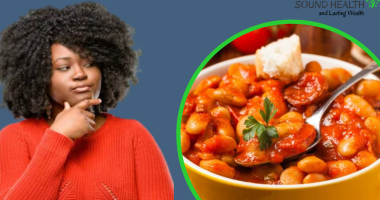Can snacks lead to chronic disease outcomes? Ultra-processed foods have been linked to a variety of serious health issues, as revealed by recent studies. Consumption of these foods, which include items like soda, candy, prepackaged meat, and sugary cereals, has been associated with over 30 damaging health outcomes.
These health risks range from cardiovascular diseases, anxiety, and common mental health disorders to type 2 diabetes, obesity, and even premature death. Ultra-processed foods are typically made from chemically modified substances with high levels of salt, fat, and sugar but low amounts of essential vitamins.
The high consumption of ultra-processed foods can disrupt gut health, cause glucose spikes, contribute to chronic inflammation, and negatively impact mental health.
The prevalence of ultra-processed foods in diets is significant, accounting for up to 58% of daily calorie intake in high-income countries.
These foods are often cheap, easily accessible, and heavily advertised. The study findings emphasize the importance of reducing processed food consumption and opting for more natural and whole foods to improve overall health outcomes.
Researchers suggest that diets high in ultra-processed foods may be harmful to various body systems and underscore the need for further research and public health actions to address this issue.
Studies found a clear association between high consumption of ultra-processed foods and a variety of health issues. This includes an increased risk of:
- Heart disease: A higher chance of death from heart-related issues.
- Type 2 diabetes: Greater likelihood of developing this chronic condition.
- Mental health problems: Links to anxiety, depression, and other mental disorders.
- Cancer: Potential role in the development of certain cancers.
- Obesity: Ultra-processed foods often contribute to weight gain.
Why are they harmful?
The study suggests several reasons why these foods pose a health risk:
Low in nutrients: They lack essential vitamins, minerals, and fiber, crucial for maintaining good health.
High in unhealthy fats, sugars, and salt: This unhealthy combination can lead to inflammation and chronic diseases.
Displacement of healthy foods: When people rely heavily on processed snacks, they tend to eat fewer fruits, vegetables, and whole grains.
How can one reduce their consumption of ultra-processed foods?
To reduce consumption of ultra-processed foods, consider the following strategies based on expert recommendations:
- Keep Healthy Snacks on Hand: Stock up on portable, nutritious snacks like fresh fruit, mixed nuts, edamame, and veggies with hummus for healthier choices on the go.
- Swap Processed Foods for Whole Foods: Replace processed items with whole foods like oatmeal with fresh fruit instead of sugary breakfast cereal, homemade popcorn instead of microwave popcorn, and nuts or seeds on salads instead of croutons.
- Get Creative in the Kitchen: Prepare homemade meals using natural ingredients like olive oil, vinegar for dressings, nuts, seeds, and dried fruit for trail mix, and chia pudding or granola bars as alternatives to processed snacks.
- Drink More Water: Gradually replace sugary beverages with water throughout the day to cut back on processed food intake.
- Read Labels: Check food labels for high sodium, trans fat, or added sugar content and opt for products with fewer additives and preservatives.
- Limit Processed Meats: Swap processed meats like bacon and sausage for less processed options like fresh chicken, salmon, turkey, or plant-based proteins like beans and lentils.
- Make Gradual Changes: Slowly implement these strategies into your diet to make long-lasting and sustainable changes over time.
By incorporating these practical tips into your daily routine, you can effectively reduce your consumption of ultra-processed foods and improve your overall health outcomes.
Other things you can do
Read food labels: Be mindful of ingredients and choose options with fewer additives and sugars.
Cook more at home: This gives you control over the ingredients and allows you to prepare healthier meals.
Support policies: Advocate for initiatives that promote healthy eating and limit the marketing of unhealthy processed foods.
What are some healthier alternatives to ultra-processed snacks?
Some healthier alternatives to ultra-processed snacks include:
- Fruit and Vegetables: Incorporate fresh and frozen fruits and vegetables into your diet as nutritious snack options.
- Nuts and Dried Fruits: Opt for nuts and dried fruits without added sugar, salt, or oil for a satisfying and healthy snack choice.
- Pulses and Legumes: Include pulses like chickpeas and lentils in your meals for a good source of protein and fiber.
- Whole Grain Starchy Carbohydrates: Choose whole grain options like whole wheat bread, oats, and whole wheat pasta over refined grains for added nutrients and fiber.
- Fresh Meat, Poultry, Fish, and Eggs: Prioritize fresh sources of protein like meat, poultry, fish, and eggs instead of processed meats like sausages or cold cuts.
- Plain or Natural Yogurt: Select plain yogurt without added sugar for a healthier alternative to flavored varieties.
- Homemade Snacks: Prepare homemade snacks like granola bars, chia pudding, air-popped popcorn, or fruit leather to avoid processed ingredients.
- Healthy Swaps: Replace sugary breakfast cereals with oatmeal and fresh fruit, microwave popcorn with stovetop-popped corn, and store-bought dressings with homemade vinaigrettes using olive oil and vinegar.
By incorporating these alternatives into your diet, you can reduce your consumption of ultra-processed snacks and improve your overall health outcomes.
ALSO READ: Pomegranate Peels and Seeds Extract Shows Promise in Reducing Cardiovascular Risk









